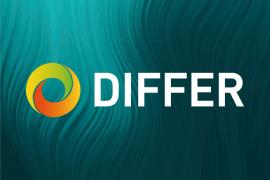There have been major developments recently in the understanding of the very edge of tokamak plasmas. New experimental analyses, coupled with new heuristic theoretical understanding, has led to a simple and accurate model for the width of the narrow region of plasma that is scraped off the plasma edge and ultimately strikes material surfaces, the Scrape Off Layer or SOL.
DIFFER
Events (archive)
